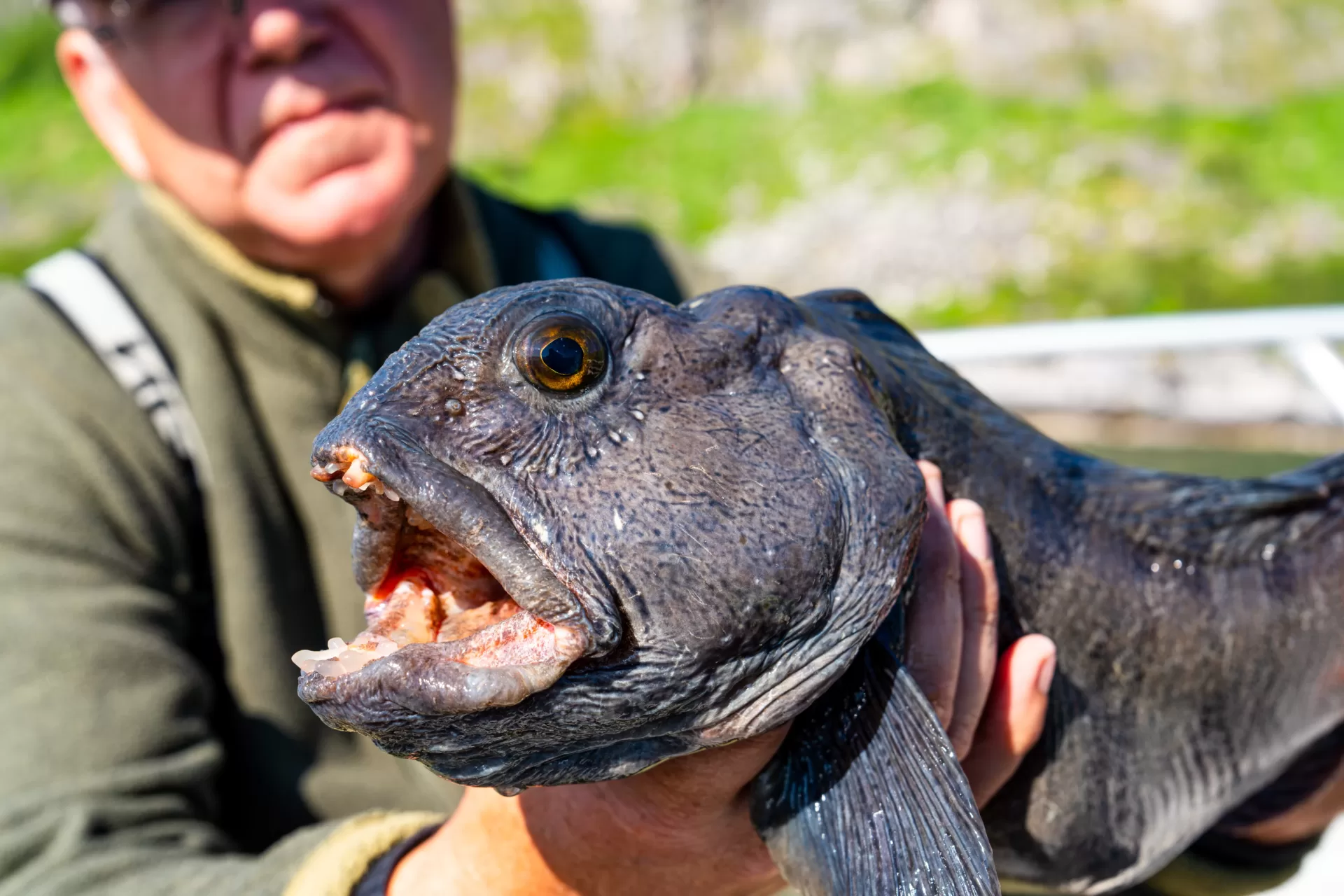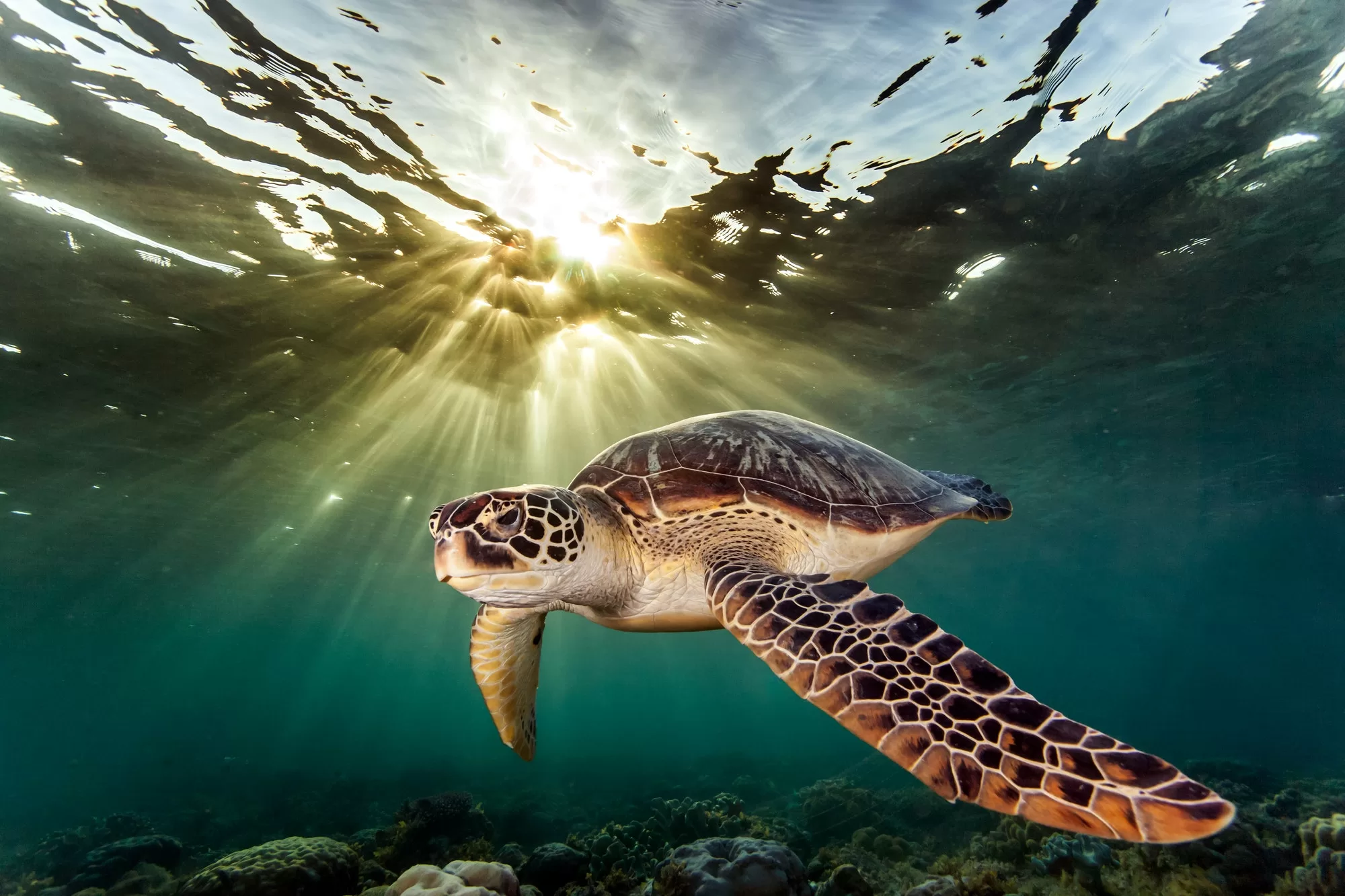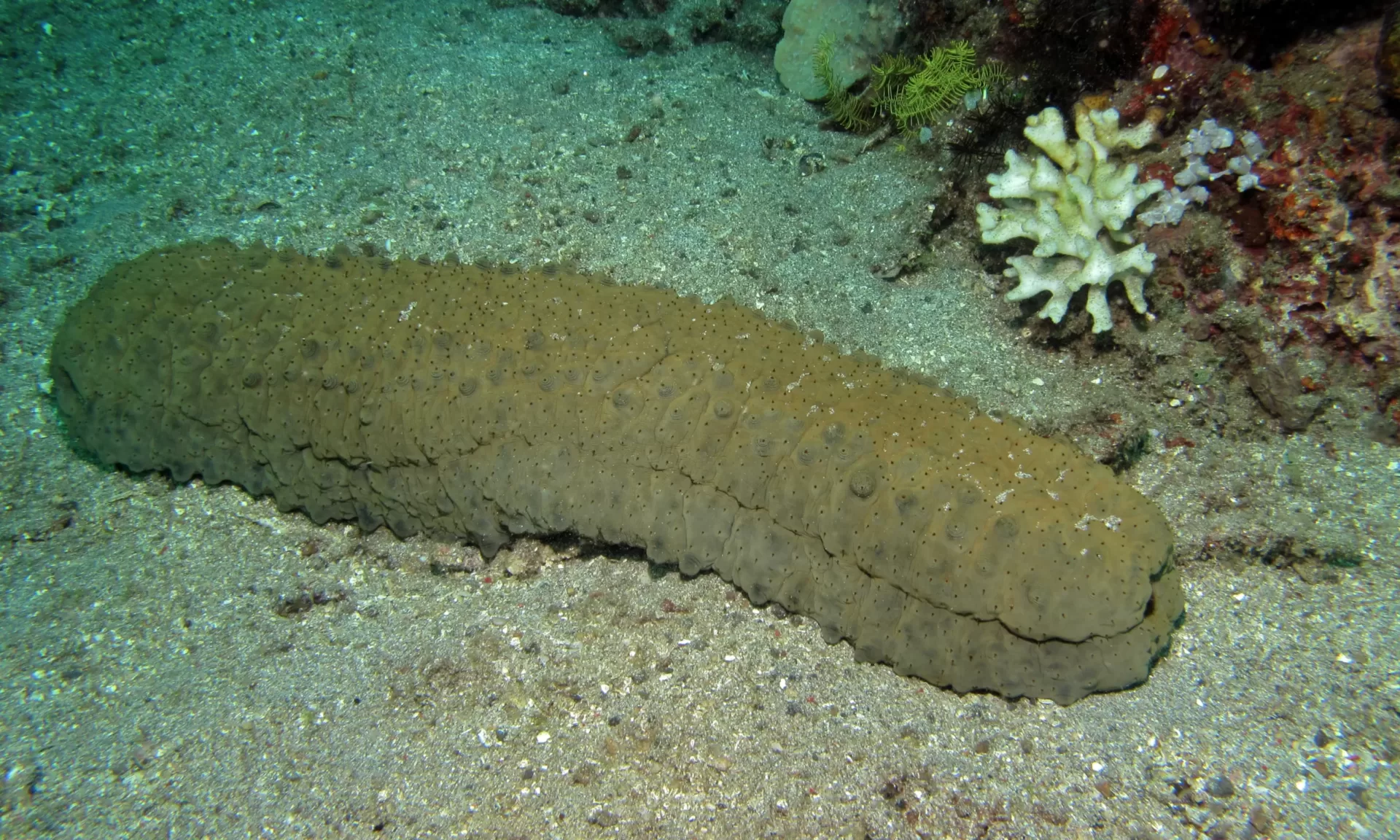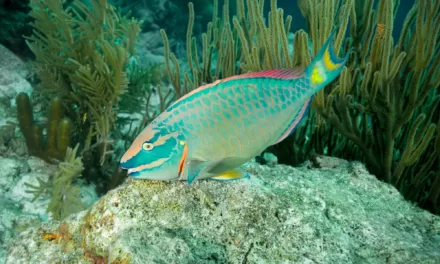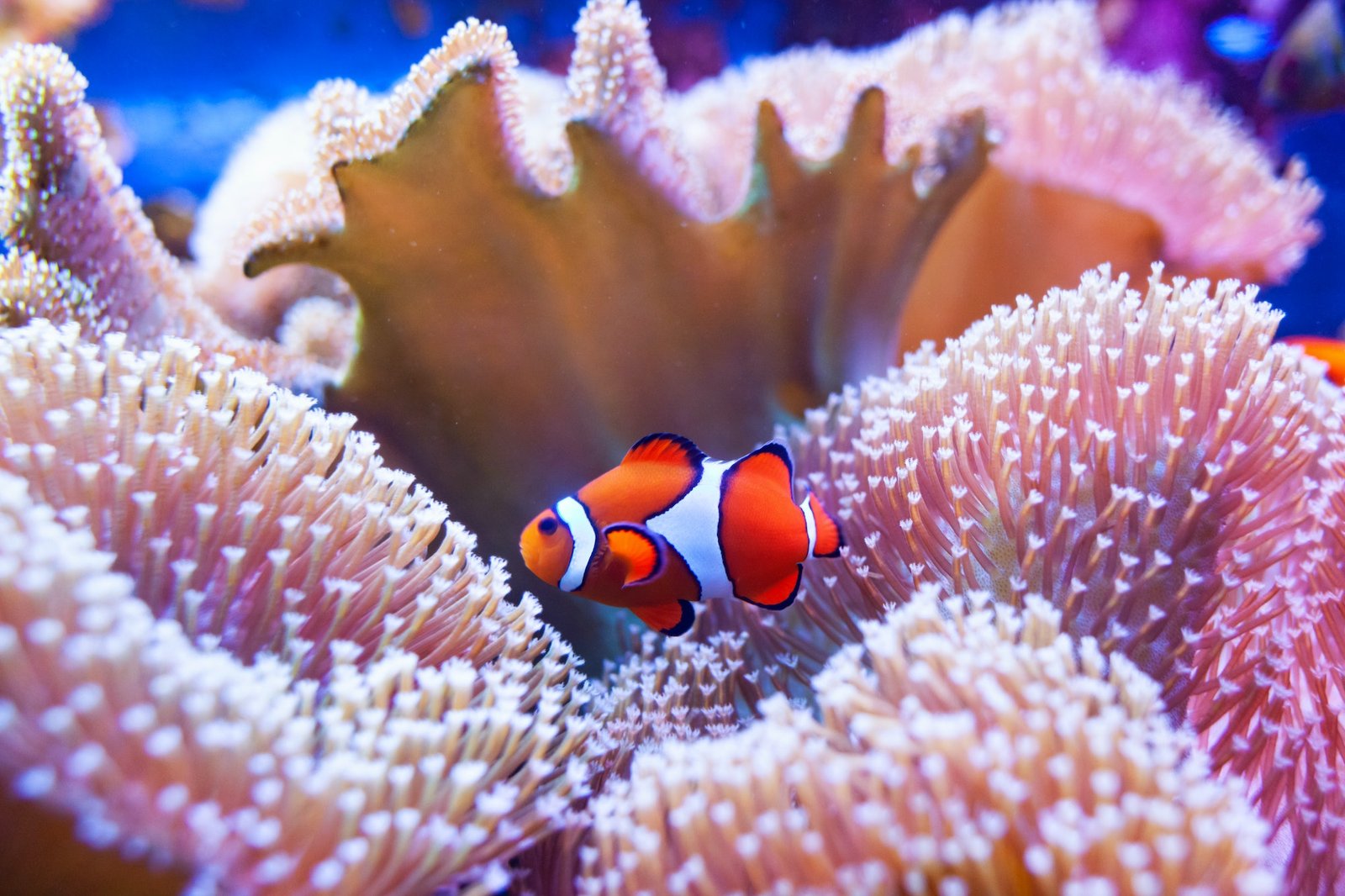Lurking in the frigid depths of the North Atlantic Ocean, the Atlantic Wolf Fish is a mesmerizing creature that boasts both beauty and power. Scientifically known as Anarhichas lupus, this fascinating fish is a true ocean predator, with a reputation that rivals that of the legendary wolves of the land. In this short documentary-style blog post, we will take a closer look at the Atlantic Wolf Fish, delving into its appearance, behavior, and ecological significance.
Physical Characteristics: A Formidable Presence
The Atlantic Wolf Fish, with its elongated body and mouth full of sharp teeth, is an impressive sight to behold. Growing up to 5 feet in length and weighing over 40 pounds, these fish are the apex predators of the depths they call home. Their mottled brown or greenish-gray coloration blends perfectly with the rocky seafloor they inhabit, serving as natural camouflage that helps them remain hidden from both prey and potential predators.
Habitat: Masters of the Cold
Found primarily in the cold waters of the North Atlantic, from Greenland to Cape Cod, Atlantic Wolf Fish are highly adapted to endure the harsh, cold conditions of their environment. With a thick layer of insulating fat and a slow metabolism, they are able to survive in temperatures as low as 32 degrees Fahrenheit. This unique ability allows them to remain active and hunt throughout the year, even as other fish species seek warmer waters during the winter months.
Feeding Behavior: The Shell-Crushing Jaws
One of the most intriguing aspects of the Atlantic Wolf Fish is its feeding behavior. Equipped with a massive jaw filled with long, sharp teeth, they are capable of crushing the hard shells of their prey, such as crabs, clams, and mussels. Their powerful bite has earned them a reputation as one of the few fish species that can crack open the hard exteriors of shellfish.
However, their diet is not limited to just shellfish. Atlantic Wolf Fish are opportunistic predators, known to consume a variety of prey, including other fish, squid, and even small seals. This versatility in their diet allows them to thrive in their environment despite the seasonal fluctuations in food availability.
Ecological Significance: The Balancers of the Ocean
Despite their fierce reputation, Atlantic Wolf Fish play a significant role in the delicate balance of the ocean ecosystem. As top predators, they help regulate the population sizes of their prey species, which in turn affects the overall health and stability of the marine ecosystem. Their presence influences the behavior and distribution of other creatures in their environment, creating a ripple effect that extends throughout the food web.
Conservation Challenges: The Threats They Face
Unfortunately, like many apex predators around the world, the Atlantic Wolf Fish faces several threats to its existence. Overfishing and habitat destruction are two major challenges that this species encounters. As a slow-growing fish that takes several years to reach sexual maturity, they are particularly vulnerable to overfishing. Additionally, destructive fishing practices that damage their rocky habitat pose a significant threat to their survival.
Conservation Efforts: Hope for the Future
Conservation efforts are underway to protect this magnificent fish and ensure its survival for future generations. In recent years, regulations have been implemented to limit fishing quotas and protect critical habitats. Scientists and researchers are also studying the behavior and ecology of Atlantic Wolf Fish to better understand their needs and reduce potential impacts from human activities.
Conclusion
The Atlantic Wolf Fish, with its awe-inspiring appearance and important ecological role, embodies the spirit of the untamable ocean. Its existence serves as a reminder of the delicate balance that must be maintained to preserve our planet’s natural wonders. By taking action to protect and conserve this species, we can help ensure that the Atlantic Wolf Fish continues to roam the depths of the North Atlantic—a fierce predator in a world largely unknown to humans.
